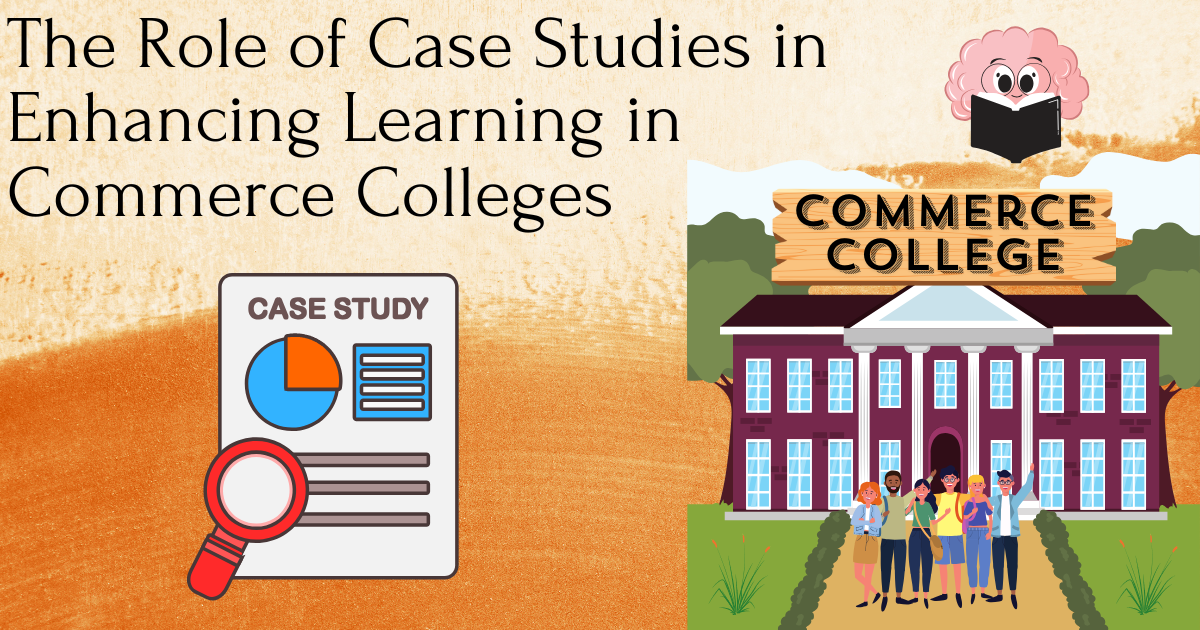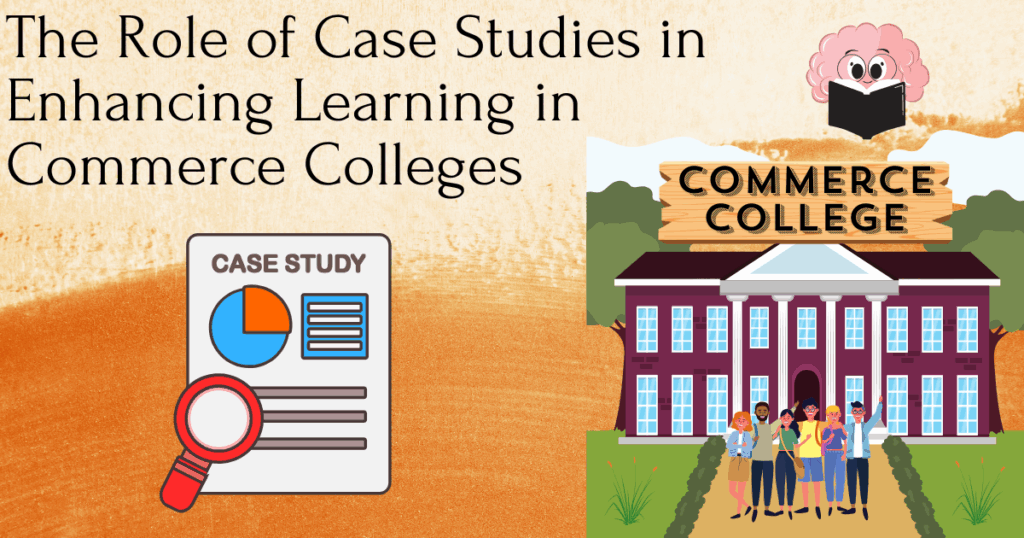The Role of Case Studies in Enhancing Learning in Commerce Colleges. In earlier times, case studies were not given that much importance. The people used to just study the textbooks and achieve theoretical knowledge. Later on, many universities emphasized case studies to gain more knowledge about the stream or course you’re pursuing. Case studies can prepare you for real-life scenarios, and you might get more information than from textbooks. To know more about the topic “The Role of Case Studies in Enhancing Learning in Commerce Colleges,” read the complete article.
The Role of Case Studies in Enhancing Learning in Commerce Colleges
There are numerous benefits of case studies in improving the education of commerce students. The case study method is a learning technique in which you’re presented with a real-world business challenge and asked how you’d solve it. After working through it yourself and with peers, you’re told how the scenario played out. The aim of the case studies is to prepare the student with practical learning experience and knowledge. Case studies enhance student engagement by offering groundwork for applying theoretical concepts to real-world situations.

Students may gain higher learning potential through reflection, discussion, and possible debate of various outcomes and solutions within a case study. Experiential learning through case studies allows students to take an active role in learning rather than a passive role. As the case study method continues to evolve, it stays a testament to the adaptability of business education. We can say that cases are laboratory materials and offer a reasonable substitute for actual experience by bringing a variety of management problems and opportunities into the classroom.
There are many advantages of case studies in enhancing learning in commerce colleges. Some of them are
Develop Critical Thinking and Problem-Solving Skills
Critical thinking is a vital skill that is highly beneficial in a range of roles across various sectors and is one of the skills in most demand by employers. In essence, it is the ability to solve problems and come up with the best solutions: a skill that is essential for a commerce student. Also, case studies help in developing problem-solving skills in studies.
Promote Decision-Making
Another skill you can build is the ability to make decisions effectively. The case study method forces you to use limited information to decide how to handle a problem—just like in the real world. Throughout your career, you’ll need to make difficult decisions with incomplete or imperfect information—and sometimes, you won’t feel qualified to do so. Learning through the case method allows you to practice this skill in a low-stakes environment. When facing a real challenge, you’ll be better prepared to think quickly, collaborate with others, and present and defend your solution.
Improve Student Engagement
The deep level of diversity present across the program provides many opportunities for students to learn as much from their peers as they do from the professors. During class discussions about the case studies, students are engaged to speak about their unique opinions, since there are often many ways to look at the problem at hand.
Enhance Communication and Collaboration Skills
Case studies are often discussed in classrooms, which helps students give their unique perspective on the real-life situations. This improves their communication skills. They learn how and when to speak and, most importantly, what to speak. Many colleges also divide students intoto teams to increase their collaboration skills. It develops a teamwork spirit in the students, which helps them in the future in many cases.
Enhance Curiosity
Curiosity is the best thing that can help a human mind get knowledge about all the topics. A curious student asks questions to understand everything deeply. “Each case offers an opportunity for students to see what resonates with them, what excites them, what bores them, and which role they could imagine inhabiting in their careers,” says former HBS Dean Nitin Nohria in the Harvard Business Review.
Bridge Theory and Practice
The traditional education system often struggles to bridge the gap between theoretical knowledge and practical implementation. Case study-based learning lets students link theory with realistic scenarios, providing a practical understanding of the subject matter. Evaluating case studies enables students to develop problem-solving skills and think creatively. This approach allows students to apply their theoretical knowledge to real-world situations, helping them for future careers.








